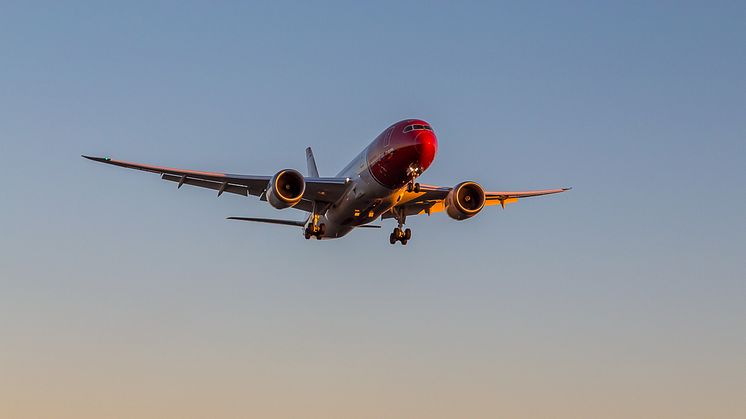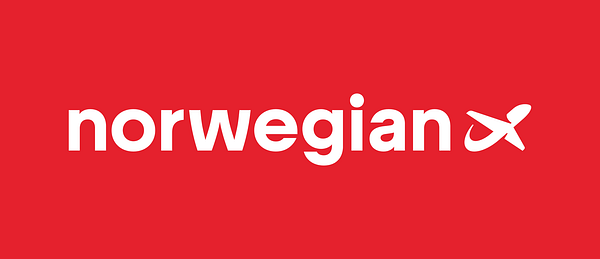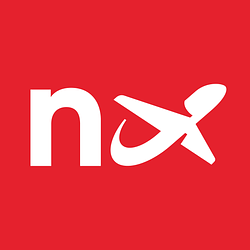
Press release -
Norwegian has been granted an Operating License and Air Operator’s Certificate in the EU
Today Irish authorities issued an air operator’s certificate (AOC) and operating license to Norwegian’s subsidiary Norwegian Air International Limited, which is based in Dublin.
With this permit, the administration of Norwegian’s long-haul operation will be transferred to Norwegian Air International Limited (NAI). The company has built its managerial and all mandatory regulatory functions in Dublin. Its aircraft operation will now be governed by the Irish authorities. The Irish regulatory authorities are considered to be among the best in the world.
Why Ireland?
Norwegian has established its long-haul company in Dublin for several reasons. The main reason is access to future traffic rights to and from the EU. Norwegian has more than 260 aircraft on order and the route network will expand rapidly in the years to come. Another important reason for choosing Ireland, and not another country within the EU (though several other European countries – including the UK and Sweden - were considered), is because Ireland has decided to fully adapt the Cape Town Convention, which provides Norwegian with better financing conditions. Furthermore, NAI’s establishment in Ireland does not affect export guarantees in connection with our financing. As well as offering one of the highest ranked civil aviation authorities in the world, Ireland is also a considerable cluster for the aviation industry; major leasing companies that Norwegian cooperates with have offices in Dublin.
It is important to stress that Ireland was not chosen because the country has specific rules and regulations that allow the use of American or Asian crew, like some politicians and unions have claimed. The fact is that Norwegian could have based its long-haul company in any other European country and still used American and Asian crew, the way several other European airlines have been operating for years. The only exception is Norway and partly Denmark, who so far have opted to keep outdated special rules within this area.
Transfer of aircraft to the new AOC
The transfer of the first Dreamliner aircraft to the new EU AOC was completed today. This took place in conjunction with a scheduled maintenance on the aircraft. The remaining aircraft will be transferred gradually. In regards to Norwegian’s long-haul routes to and from the U.S., the U.S. Department of Transportation is now processing Norwegian’s application for a permit. This is regulated by the Open Skies Agreement between the U.S. and the EU, which means that an operator from either party, which fulfils the requirements, should be entitled to operate under this agreement. Today’s announcement means that Norwegian meets all the requirements.
Recently, both competitors and unions have made a number of false allegations against Norwegian and Ireland on this matter. The EU’s transport authorities, the Irish authorities and Norwegian have repeatedly refuted this. Norwegian expects that the U.S. government will process the application in accordance with the principles of the Open Skies Agreement and that Norwegian is given the same rights as were given when we operated on an EEC AOC, once the AOC is transferred from Norway to the EU.
Media Contacts:
Norwegian’s Press Office: +47 815 11 816
Topics
Categories
Norwegian Air Shuttle ASA, commercially branded “Norwegian”, is a low-cost airline listed on the Oslo Stock Exchange. Norwegian is the second largest airline in Scandinavia and third largest low cost carrier in Europe. More than 20 million passengers fly on its network per year. Norwegian has a route portfolio that stretches across Europe into North Africa and the Middle East, as well as long-haul flights to the US and Southeast Asia. The company has a total of 413 routes to 128 destinations and employs approximately 3,500 people in Norway, Sweden, Denmark, Finland, Estonia, UK, Spain and Thailand. The company has 258 undelivered aircraft on firm order. Norwegian was founded in 1993 and its headquarter is in Fornebu, Norway. In 2013, Norwegian was voted Europe’s best low-cost carrier of the year by the renowned SkyTrax World Airline Awards. Norwegian offers better leg room than most competitors, in-flight WiFi, world-class punctuality and a fleet of 89 aircraft with an average age of only 4.8 years.


